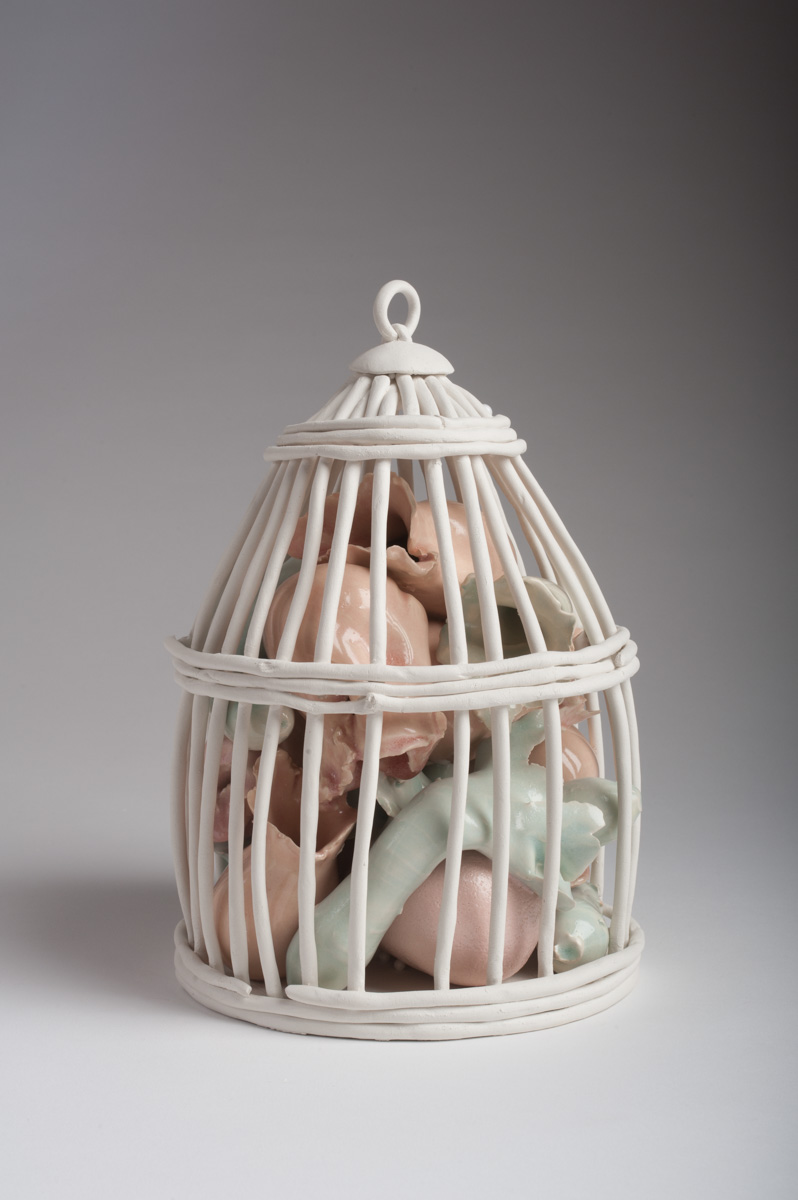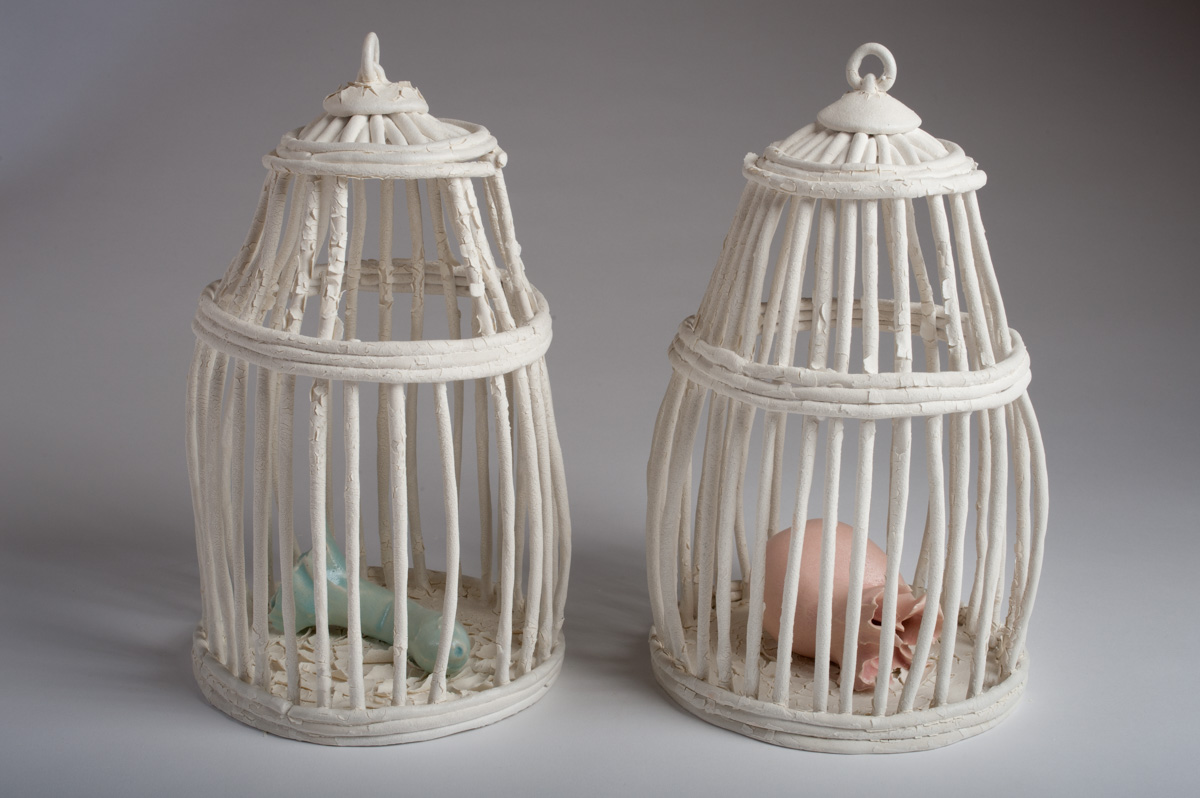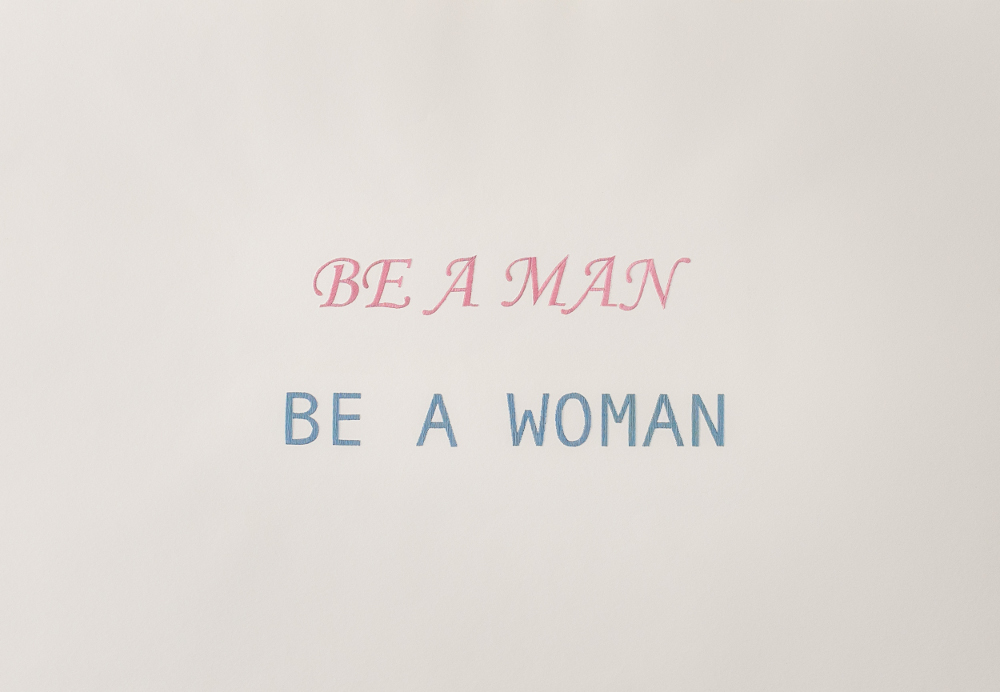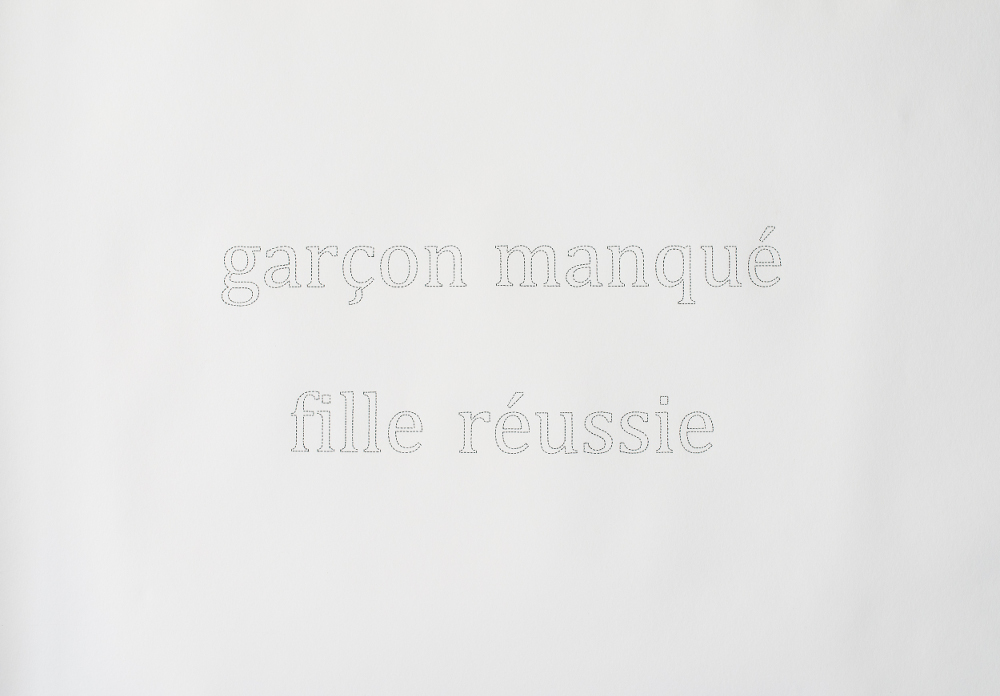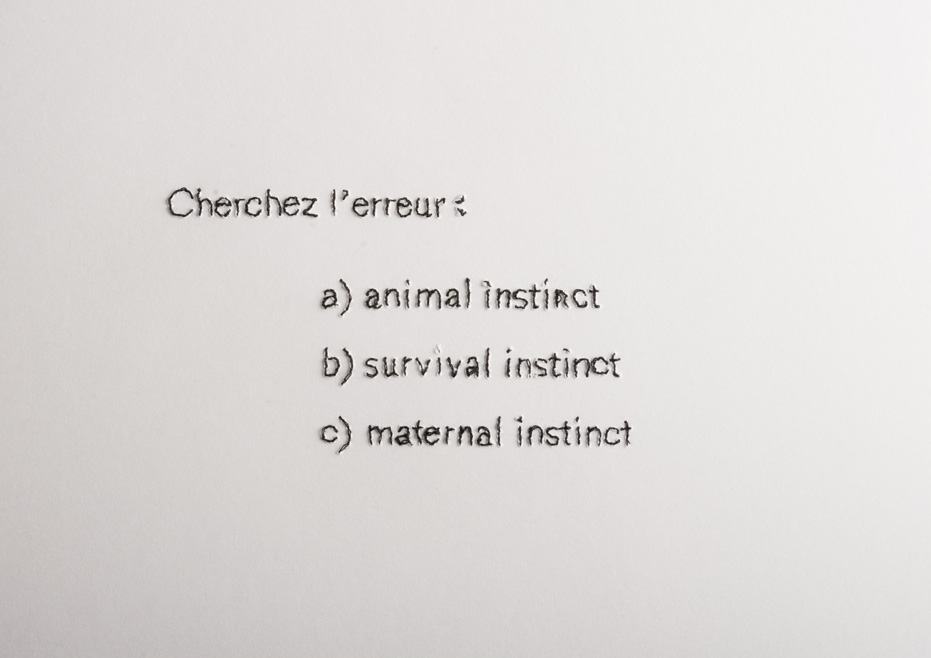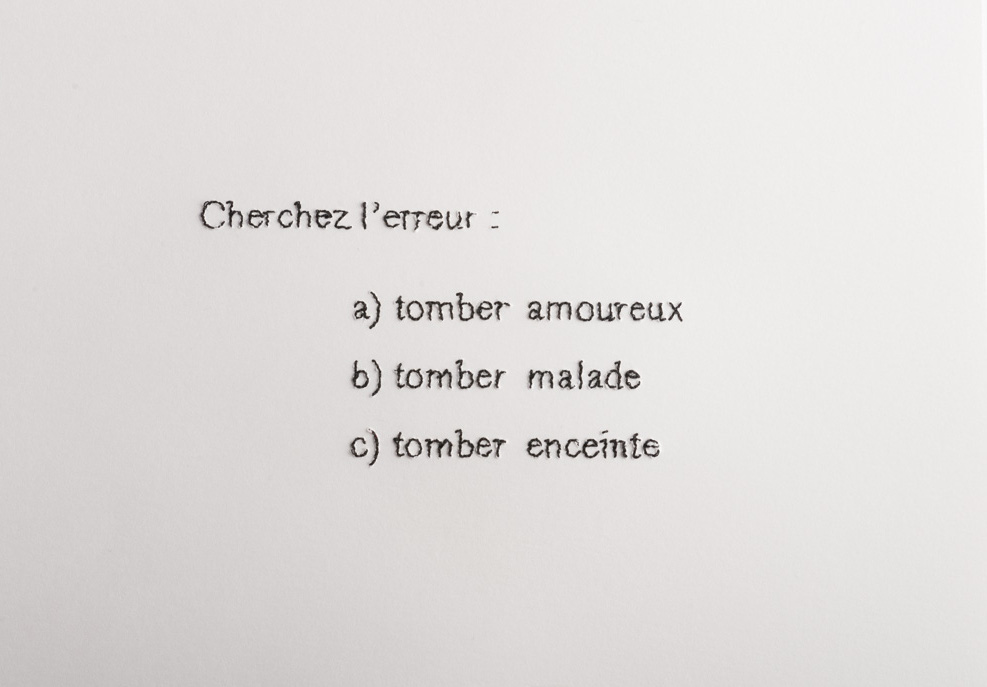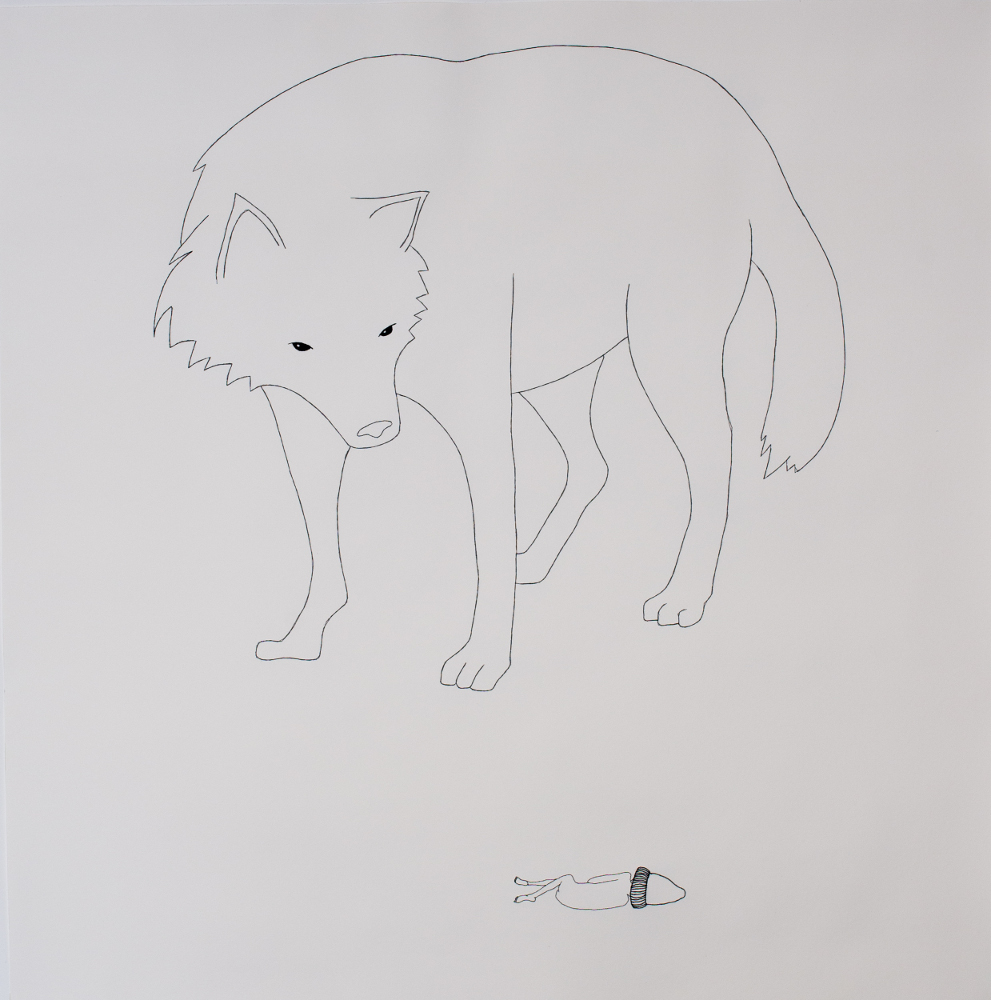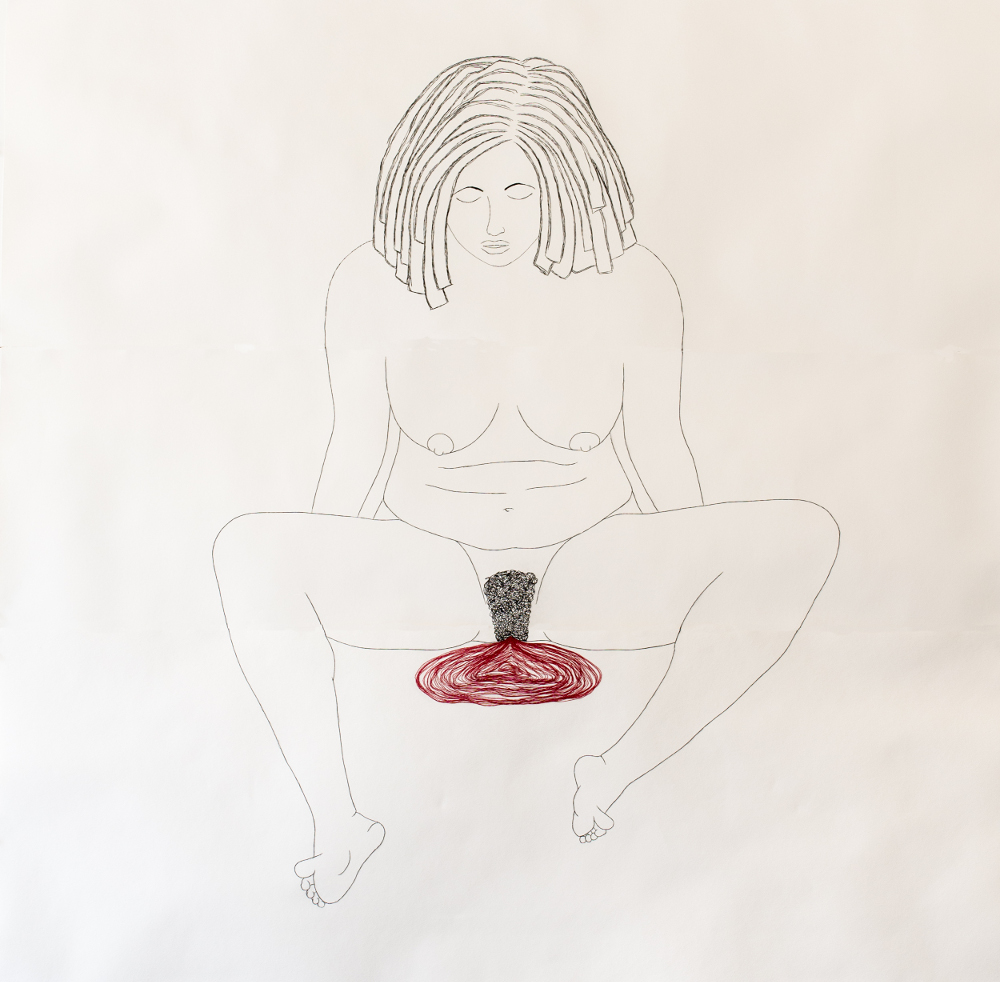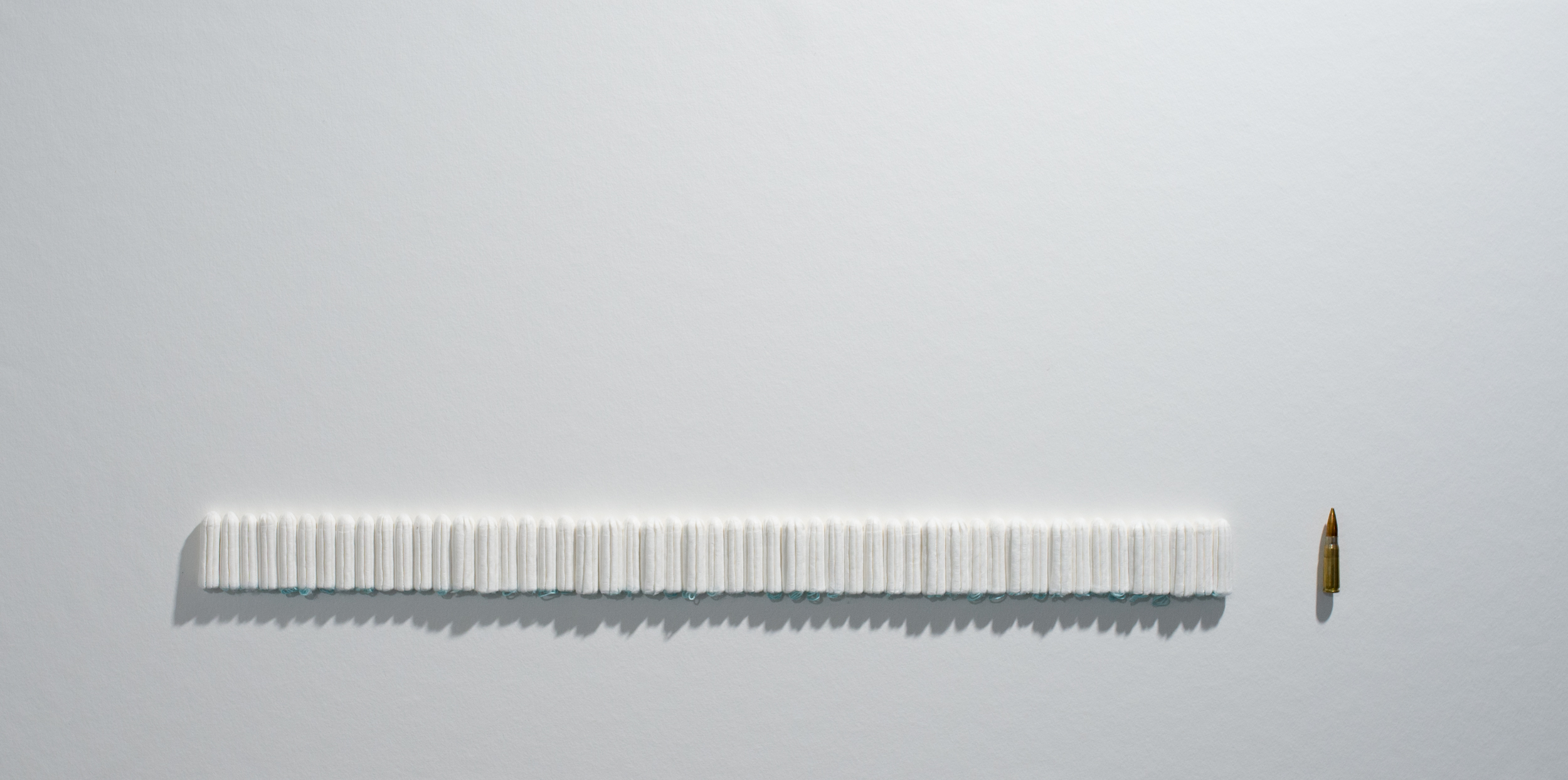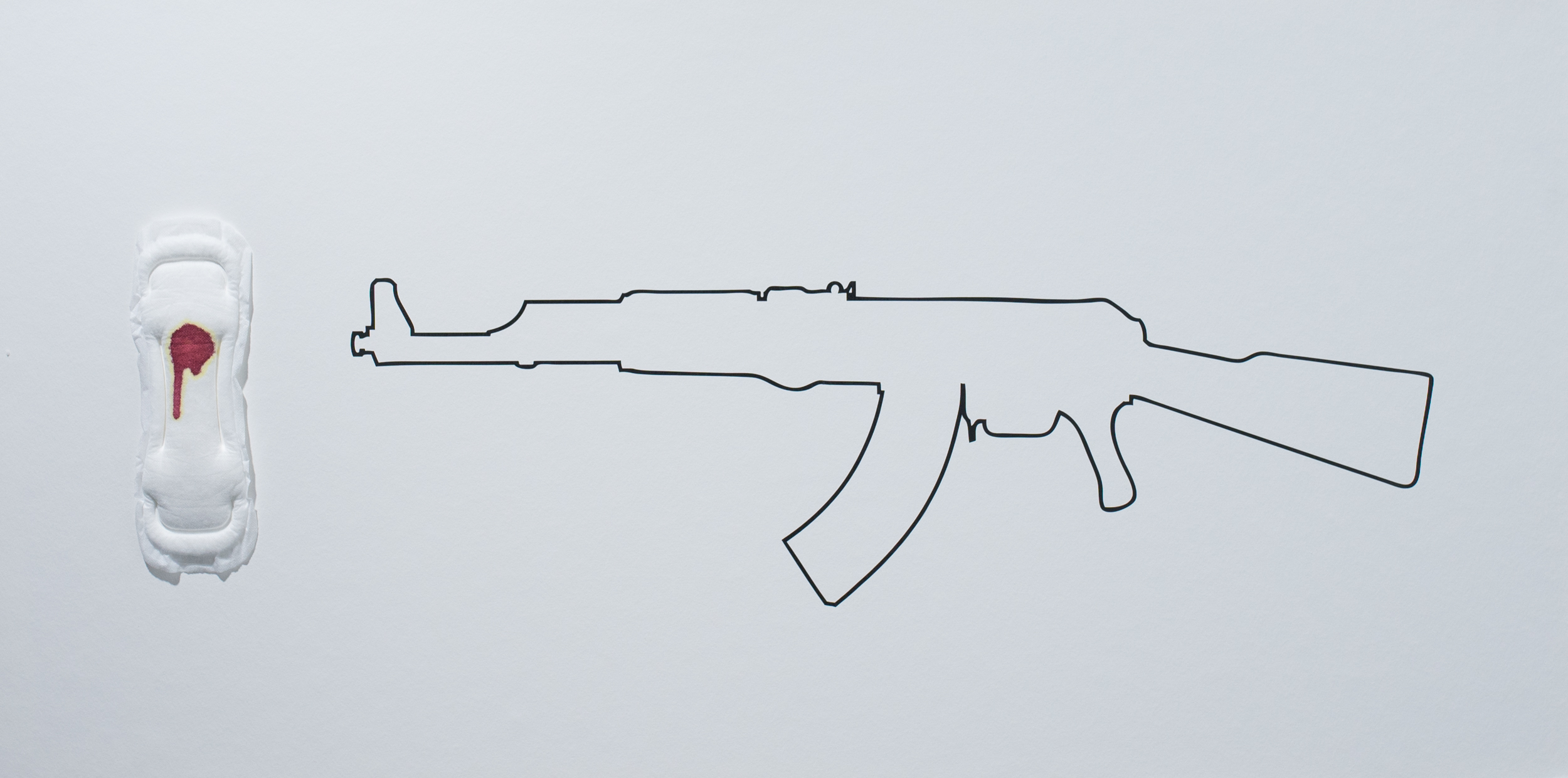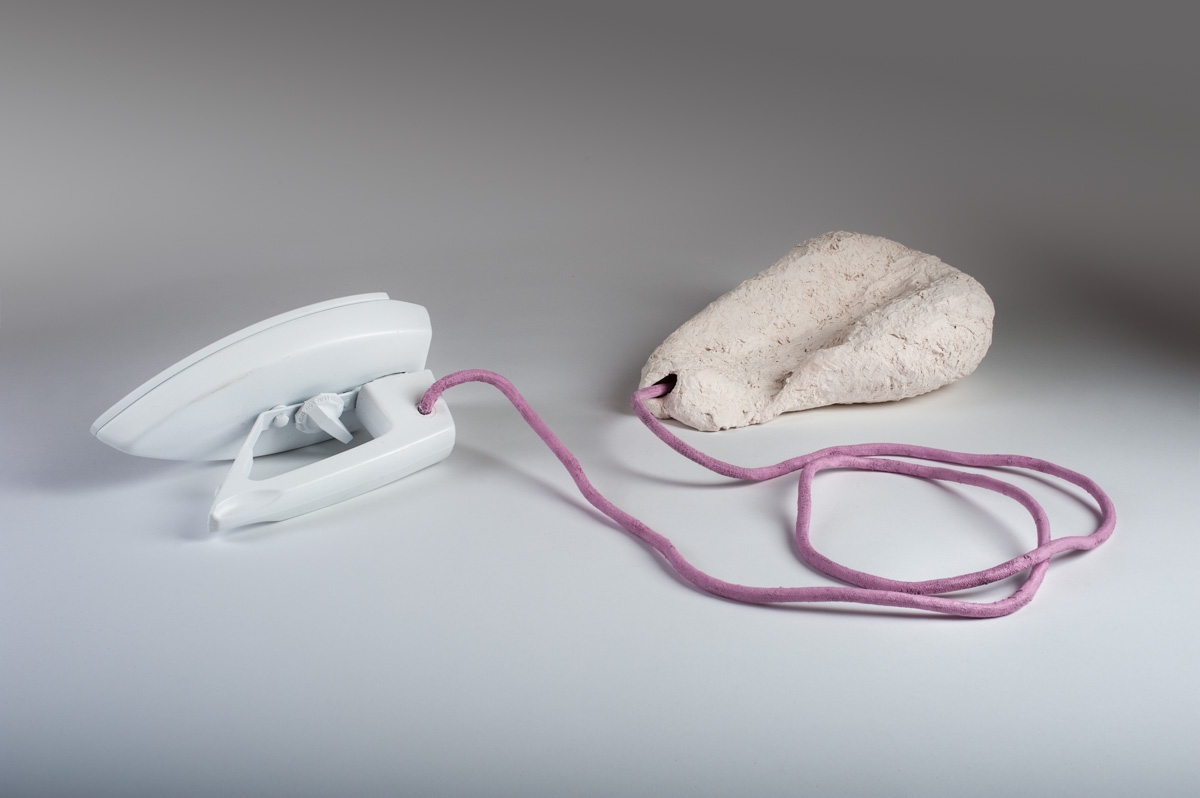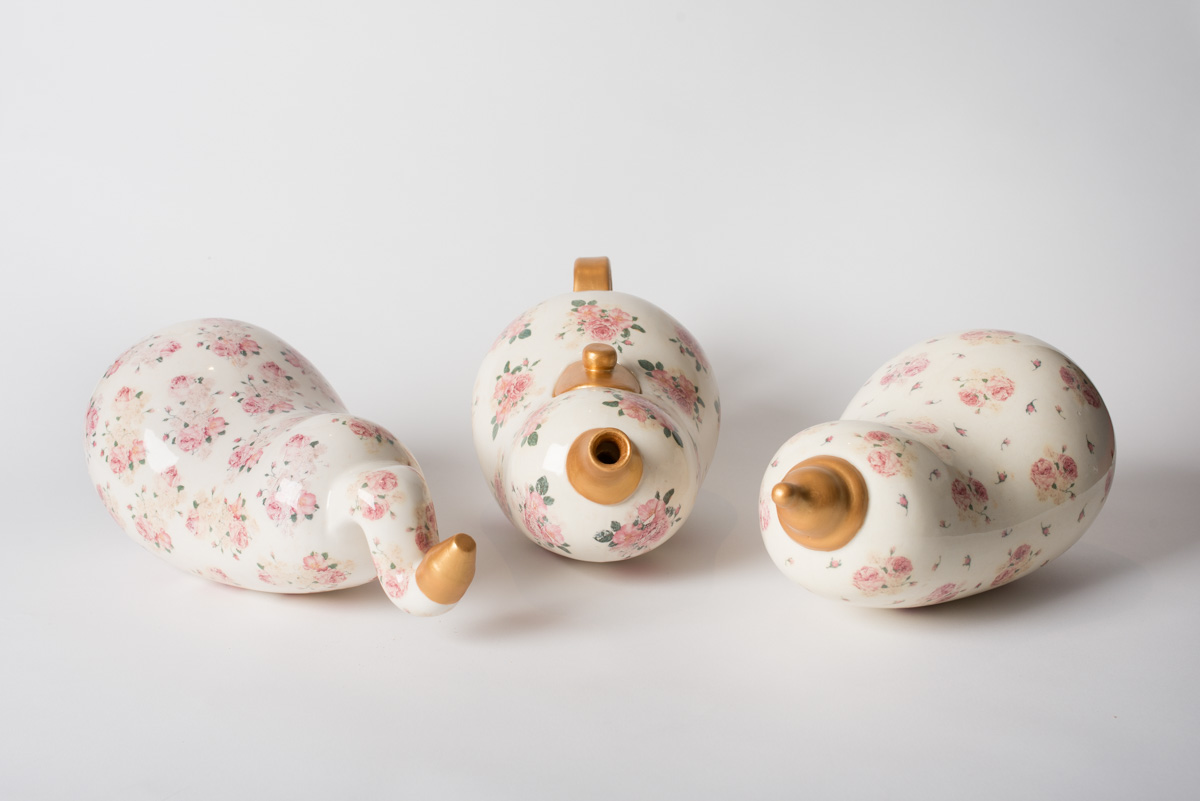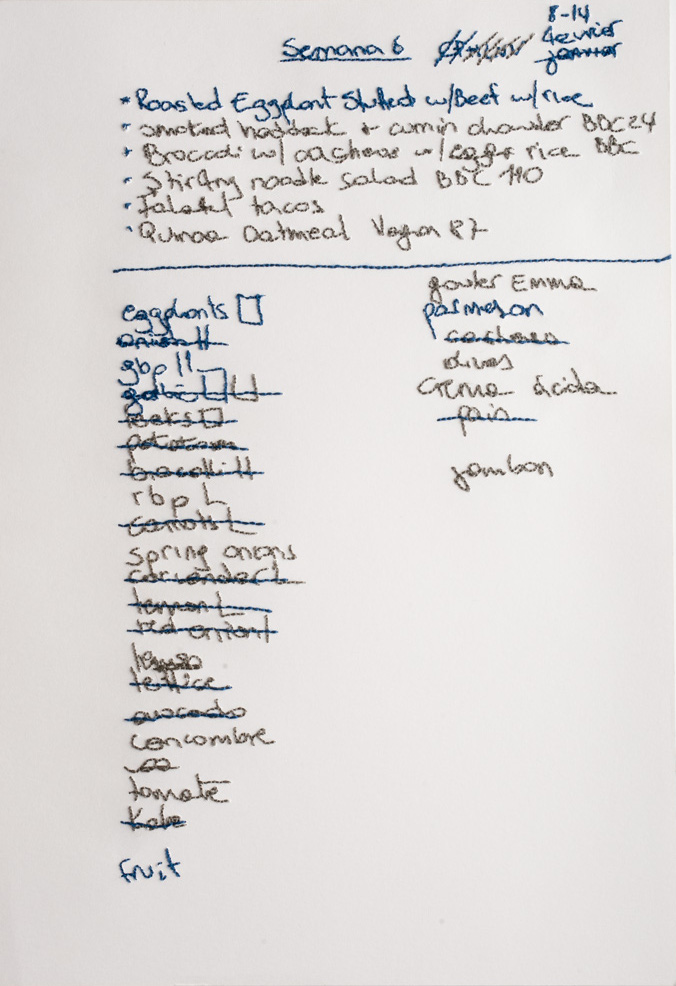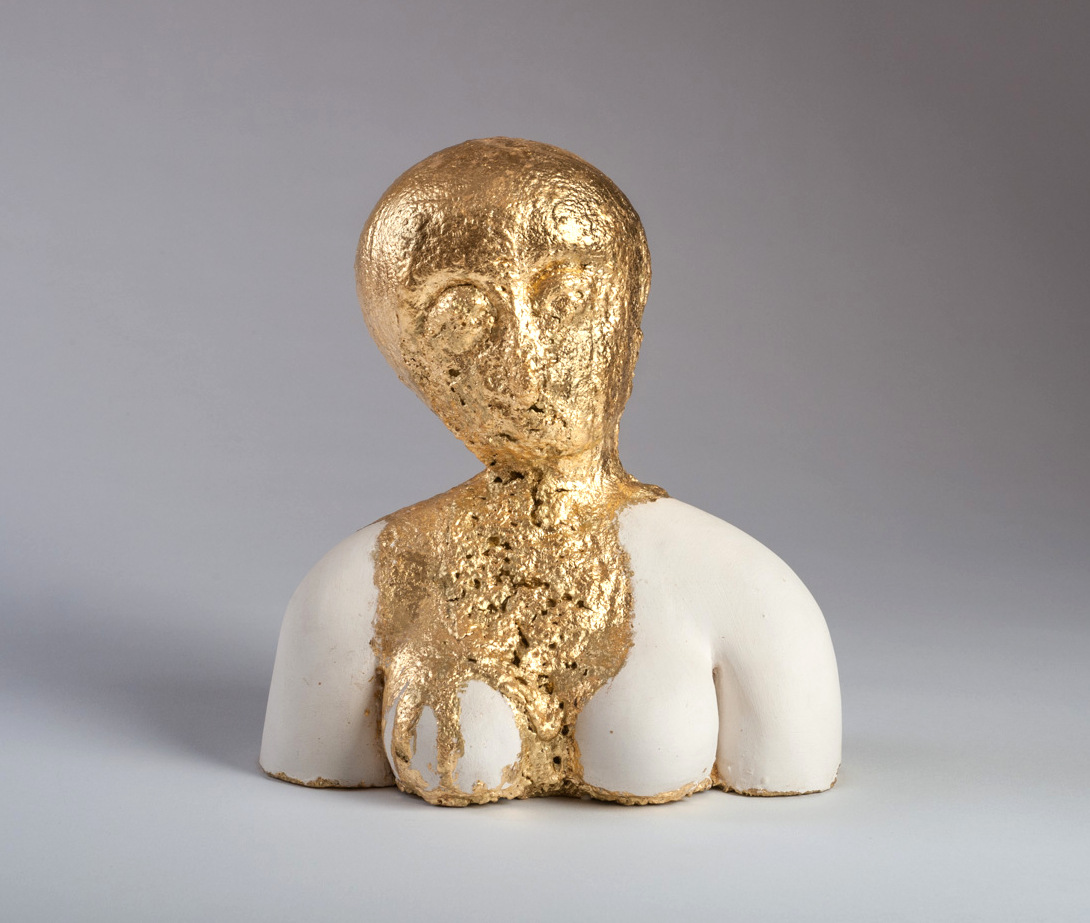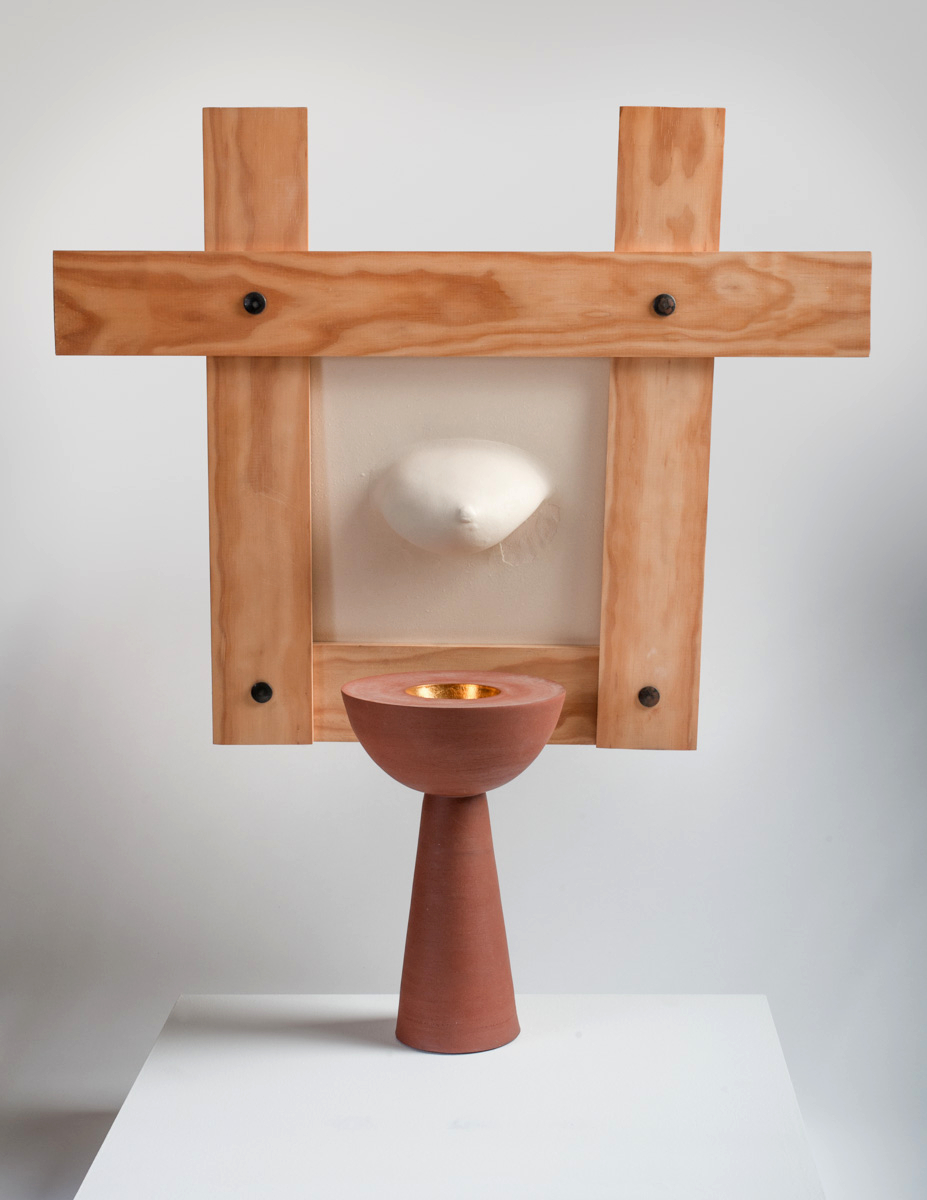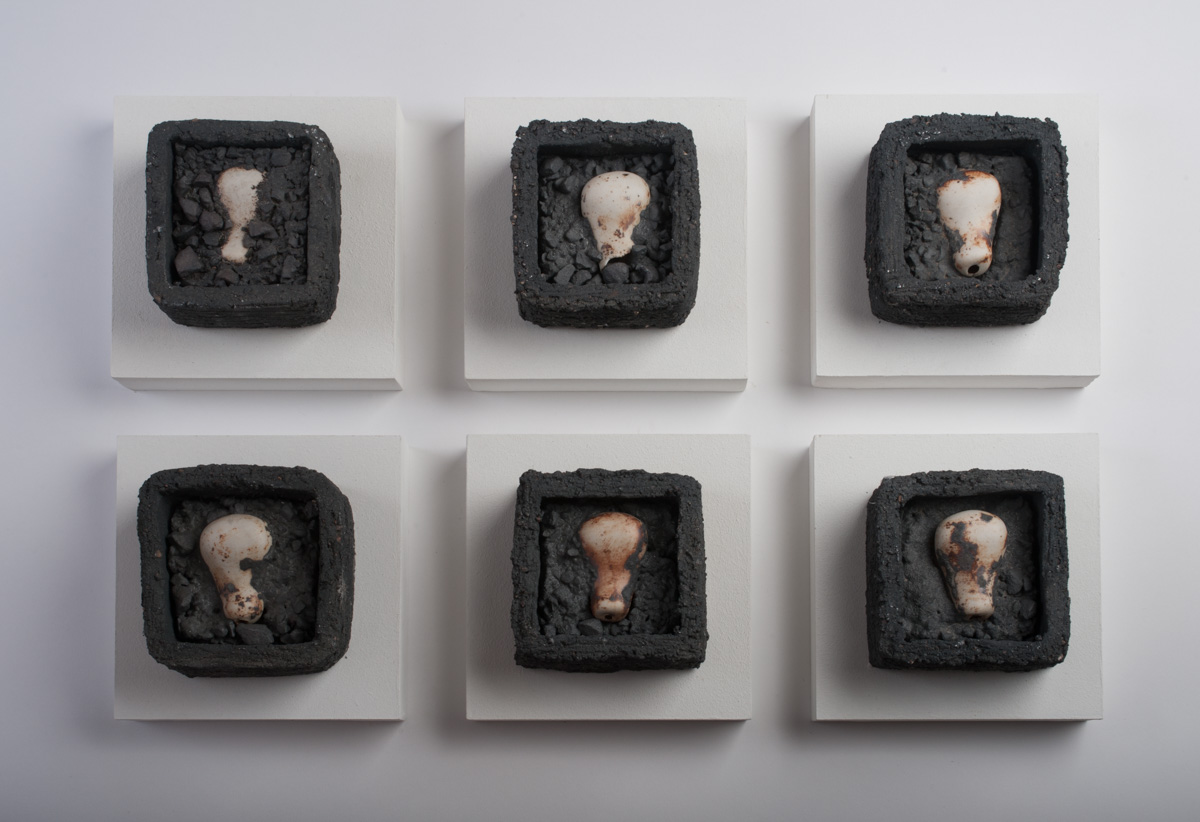Karen Meersohn
the eternal irony
An autobiographical journey through which I account for those aspects where being a woman has proven to be problematic, uncomfortable, strange; where my assigned place in the community did not fit me, or remained undefined due to a lack of a phenomenological reflection that would take into account the specificity of inhabiting the world in the body of a woman.
« The eternal irony » is a nod to Hegel’s phrase in the Phenomenology of the Spirit, according to which women would be « this eternal irony of the community » because they are incapable of complying with and respecting the established order, the « universal goal of government ».
If women disturb the universal, it may be because there isn’t one, and it is only by delving into the heart of the particular that we begin to sketch a universal accessible to all. Being a woman is still a marginal experience, but from this marginality grows a strength, a privileged space from which to observe and act upon the world.
l’eternelle ironie
Parcours autobiographique a travers lequel je rend compte de ces aspects où être une femme c’est avéré problématique, inconfortable, étrange; où ma place assignée au sein de la communauté ne me correspondait pas, ou bien quelle restait encore a faire, faute d’une réflexion phénoménologique prennant en compte la spécificité d’habiter le monde dans le corps d’une femme.
« L’eternelle ironie » est un clin d’oeil a la phrase de Hegel dans la Phénoménologie de l’Esprit, selon laquelle les femmes serait « cette éternelle ironie de la communauté » car incapables de se plier et de respecter l’ordre établi, le « but universelle du gouvernement ».
Si les femmes perturbent l’universelle c’est peut être car il ne l’est pas, et que ce n’est qu’en plongeant ou coeur du particulier qui nous seront à même d’esquisser un universel accessible a tous. Etre une femme reste encore une experience marginal, mais de cette marginalité naît une force, un espace privilégié depuis lequel observer et agir sur le monde.
